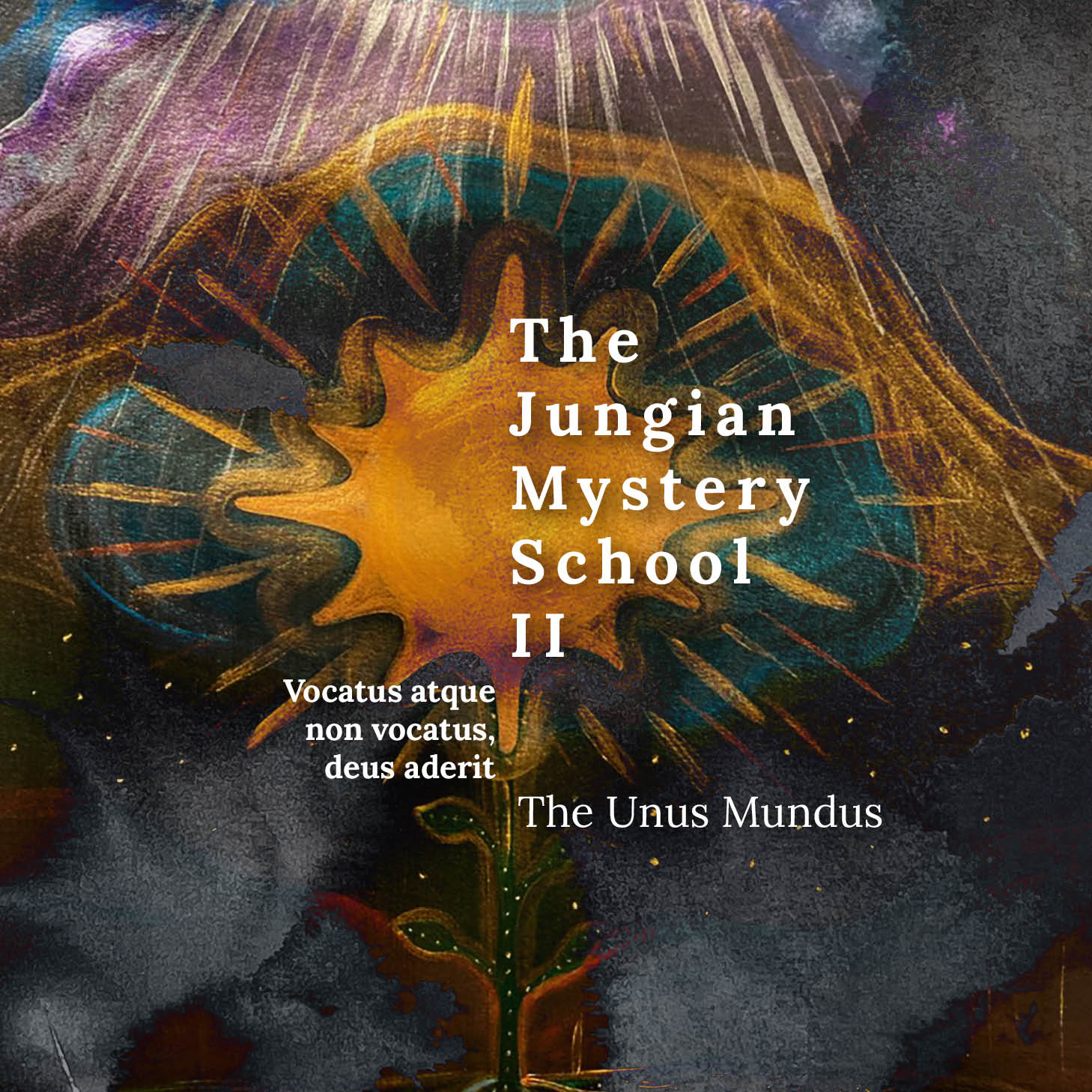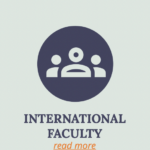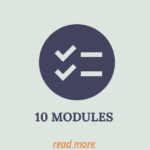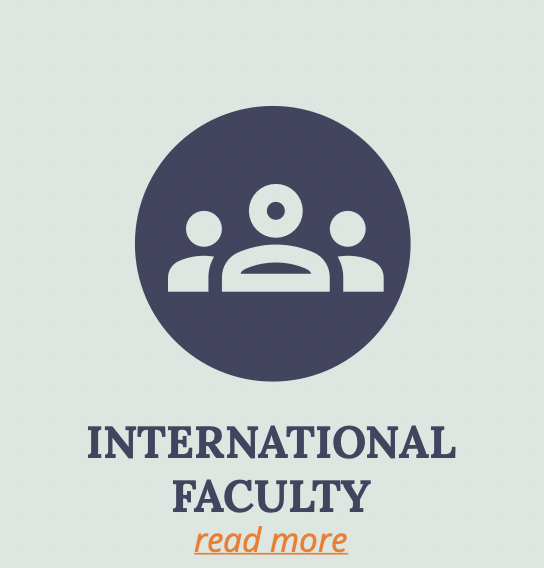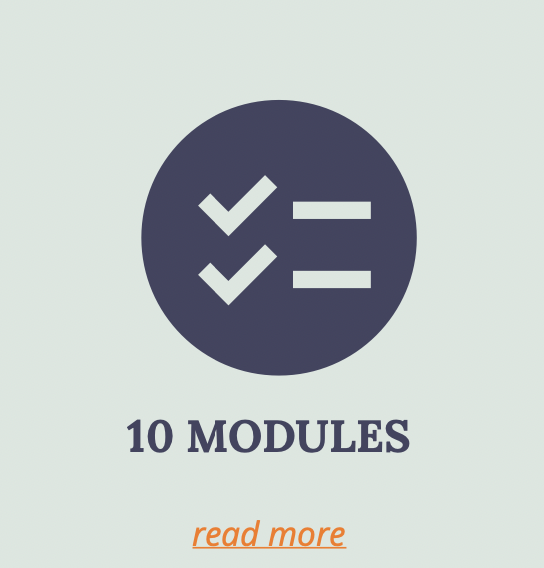The Jungian Mystery School 2022 will take students on an in-depth exploration of the mystery of individuation as outlined by Jung in the final chapter of Mysterium Coniunctionis (CW 14). There Jung employs the work of the alchemist, Gerhard Dorn, to outline a psychological/spiritual development that arrives at the ultimate goal of joining the individual to the Unus Mundus. The presentations on this program will discuss and explore approaches from various spiritual traditions towards this goal.
The faculty for the Mystery School, selected by Murray Stein PhD and Stephen Farah MA, HOD at The Centre for Applied Jungian Studies, include some of the world’s foremost authorities on the intersection of various mystical traditions and psychoanalysis.
PROGRAMME DETAILS

Every Saturday for the 10-weeks of the programme features a live interactive lecture or workshop from 16h00 to 18h00 (London). All lectures and workshops are recorded for later viewing for those unable to attend live.
Participation in the programme includes all lectures, learning materials, applications (introspective exercises) and membership of a facilitated private Facebook page for the student community.
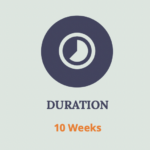



EACH MODULE INCLUDES:
Reading Material
Six 90-minute lectures and three 2-hour workshops delivered online via Zoom.
All lectures/workshops are recorded for later viewing those unable to attend live.
All learning material and lectures remain available to you for 12-months after the programme completes.
Certification of Completion.

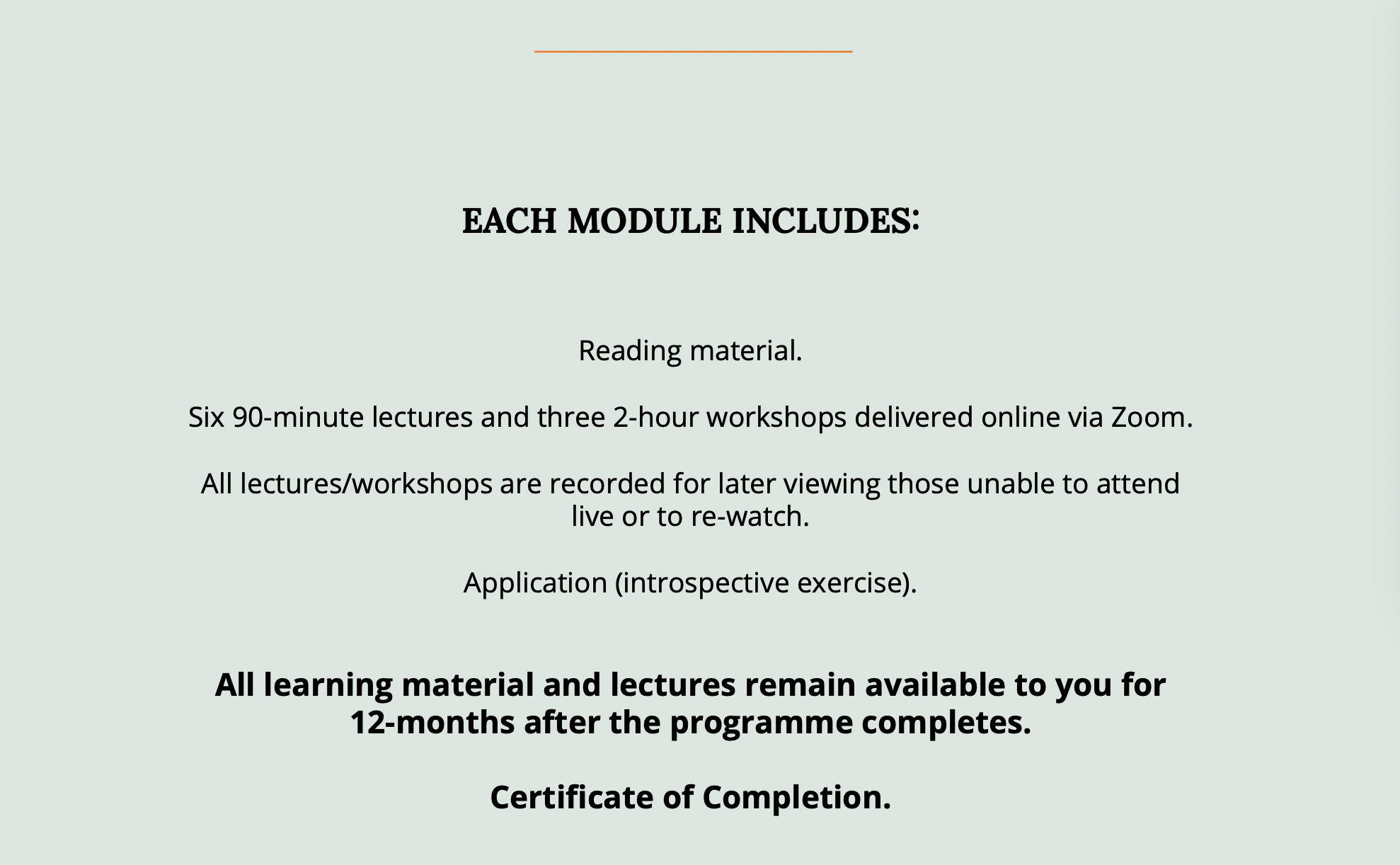
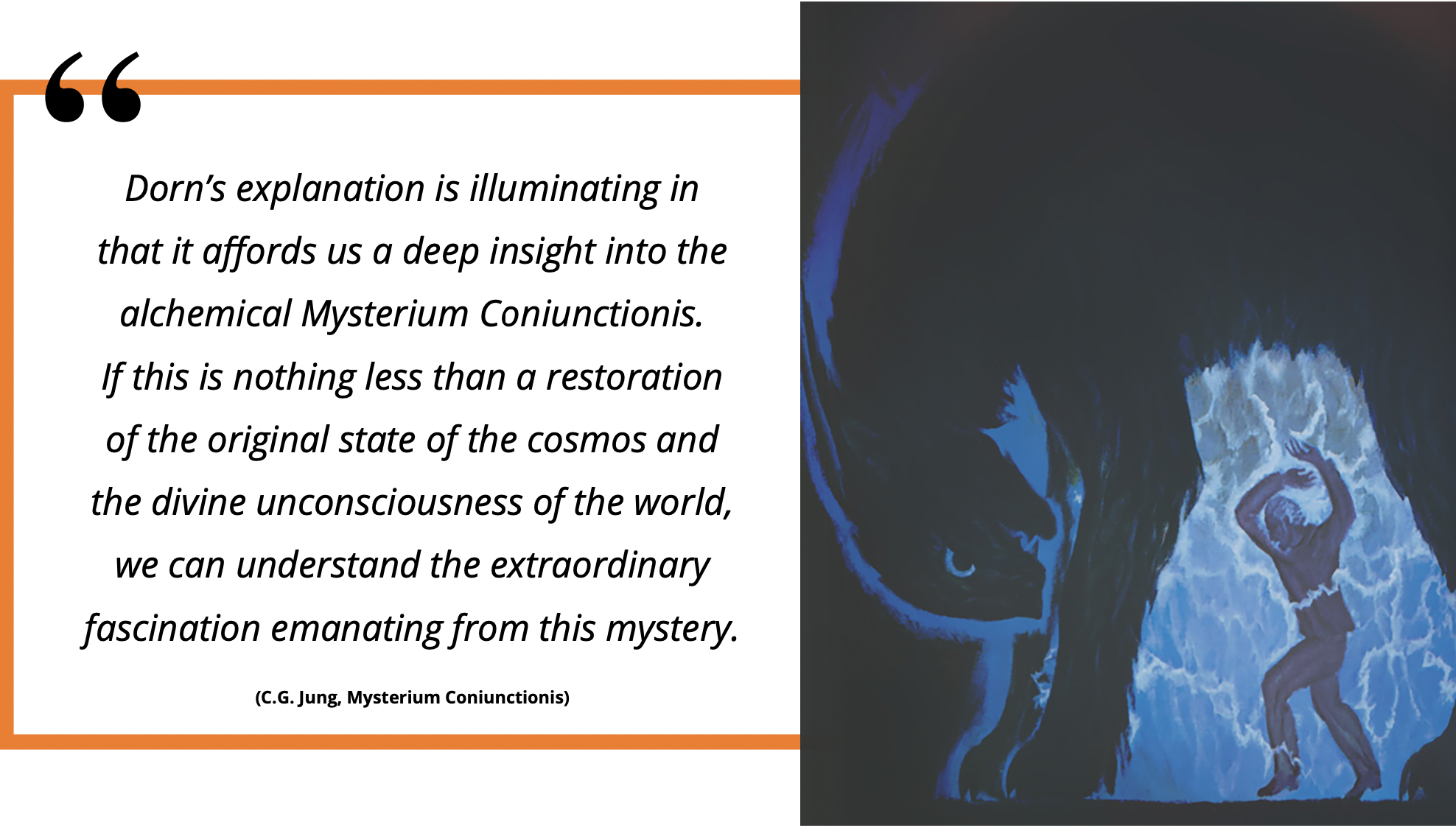
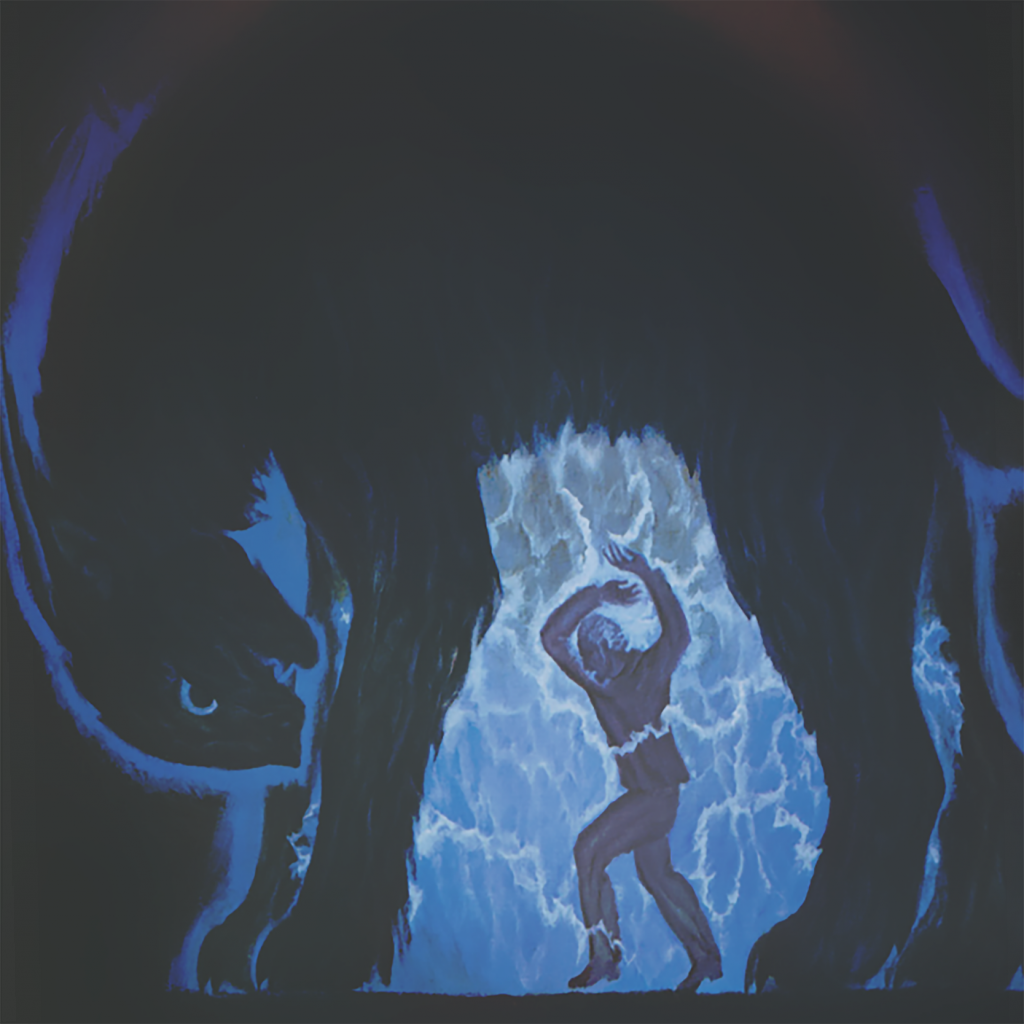
Dorn’s explanation is illuminating in that it affords us a deep insight into the alchemical Mysterium Coniunctionis. If this is nothing less than a restoration of the original state of the cosmos and the divine unconsciousness of the world, we can understand the extraordinary fascination emanating from this mystery.
(C.G. Jung, Mysterium Coniunctionis)

THE PROGRAMME

Click each item to expand more details.
90 Minute Lecture
What we witness in Dante’s Divine Comedy is a visionary account of a journey through the land of the dead that displays clear stages of psychological and spiritual development. This journey was experienced and turned into a magnificent work of art by Dante in the second half of his life. Like Jung crafting his Red Book for more than a decade, Dante meticulously composed The Divine Comedy over a similar period of time, from 1308 until 1321 as scholars have estimated, although the experience he writes about took place, he says, in only a few days, while he was in Rome during Holy Week in 1300. Dante tells the story as a recollection, as memory that he is now recounting in the elevated form of literary art. As a Jungian psychoanalyst, I am looking at the Commedia not as art or literature but as a depiction of psychological transformation achieved through what Jung called active imagination.
90 Minute Lecture
In the non-dual spiritual traditions such as Advaita Vedānta, reality is seen as an undivided unity, very much in accord with the notion of the Unus Mundus and in some respects with Jung’s monism. However, fully developed non-duality relinquishes the importance of the ego, a process to which Jung would not accede because he believed this meant unconsciousness. This presentation will describe some of the ways in which Jung’s work is consonant with non-duality and some ways in which it is incompatible with that tradition. The Upaniṣadic notions of the Ātman and Saguṇa Brahman will be offered as potential bridges between Jung and the Upaniṣadic tradition.
90 Minute Lecture
With reference to Jung’s interpretation of Gerhard Dorn’s “Stages of the Conjunction” and the symbolic cosmological perspective offered by archetypal astrology, this talk sets forth a larger cosmological and metaphysical view of individuation in relation to the universe, evolution, and the unus mundus as the “eternal Ground of all empirical being.”
2 Hour Workshop
Gerhard Dorn expressed a process that I hope to follow via the rubric of making music. The outline of the process: 1. the body is indulging in addictions; 2. the soul and spirit separate from body and engage with each other; 3. arriving at mental union whereby the body now with libido investment makes the choices that are life furthering – “Unus Mundus” with refined and appropriate acts that serve the idea of soul and spirit. I am a cellist, so music for me is performance. I will try with my cello in hand to share with you Dorn’s process. My personal discovery started by noticing that during a practice session a forgotten dream segment would suddenly appear in my minds eye. I took that image into a moment of executing a difficult complicated change of bow. To my surprise the outcome was a deeply meaningful phrase – saying something that was not calculated. I will try to knit together what I think happened, and still does happen.
90 Minute Lecture
We believe there is a path, stages to be accomplished in the realization of the unus mundus, enlightenment, and individuation. Yet we fail, even after a lifetime of hard discipline, to reach those shores. We slip, hesitate, forget, are diverted, are subject to illness and fear, and appear to lack that single mindedness that keeps us on a steady, consistent incline toward our imagined goal. This presentation is about what stands in our way, why there is slippage, and whether it is possible to rest in the unus mundus and fully realize the goal.
2 Hour Workshop
In this workshop we will be exploring the Sufi mystic notion of Wahdat al-Wujud, unity of being, in relation to C. G. Jung’s discoveries related to the nature of Unus Mundu. Jung contends in Mysterium Coniunctionis, The Conjunction, that unus mundus, meaning the “unity of the soul”, “rest empirically on the basic structure common to all souls, which though not visible and tangible like the anatomical structure, is just as evident as it”. Sufi mysticism holds that life in the world may be likened to a journey, and the real desire of the soul is to reach the goal. The soul’s journey passes through different planes, from the physical to the plane of eternal consciousness – and back. Essentially the path of this journey is within ourselves. Wahdat is the plane of consciousness, and it is experienced as Sound. There are certain practices for reaching Unity of Being. Together we will aim for a flavour of being “in” Wahdat al-Wujud, through active imagination.
90 Minute Lecture
In his last major work on individuation, Mysterium Coniunctionis, Jung presented the process as culminating in symbolic and even direct experience of and union with the unus mundus, the “one world,” variously glossed as the “potential world,” “the transcendental psychophysical background,” and “the eternal Ground of all empirical being.” In this talk, I shall argue that the concept of the unus mundus, far from being an exotic late speculation, was presupposed in Jung’s work from at least 1916 and thereafter implicitly grounded not only his therapeutic work but also his critique of contemporary culture. I shall suggest that the concept remains of much more immediate relevance to today’s social, political, and environmental crises than its alchemical provenance and Latin diction might lead one to expect.
2 Hour 30 Minute Workshop
Jung and Dorn framed individuation as a temporal development in alchemical stages. Gradual conceptual paths risk becoming wooly and uncertain intellectual suppositions. A complete vision of individuation must include the immediate, nontemporal, experiential realization of who we truly are. Using systematic experiential methods, contemplative scientists made a Copernican-like discovery about the mind’s innermost nature. This workshop will introduce these methods and findings. And consider their value and implications for an evolving vision of individuation. This workshop is experiential. We will practice together, using these same methods for realizing the Mind’s essence as the Natural State. The mind’s elemental nature can be directly experienced as its Natural State. With practice and familiarity, our capacity to find and remain in the Natural State becomes clear, strong, and stable. Self-arising wisdom in the timeless awareness of the Natural State unveils a two-fold realization: 1) our conditioned identity is a fictive misconception, and 2) our true identity is—the Unus Mundus, the very Ground of Being. At home, finally, yet always, our mind experiences itself as primordial awareness-based nonidentity, alive in—and alive as—vast, indescribable Mystery. The temporal and nontemporal are not separate, let alone opposite. Apparent conflict begs for a third, recognizing their interdependence as a foundation for complete individuation.
2 Hour 30 Minute Workshop
Maria Prophetissa’s geometric Tetractys reveals a world-embedded yet emergent, human and non-human “self-object”, “a psychic organizer”, even “a state of transition” (Mills 2019). This offers hints of the long lost Gnostic Wisdom of Sophia, along with a neutral and healing language, both personal and expansive, that can manifest spontaneously during urgent traumatic disruption, potentially enhancing wonder and courage for navigating through tragedy. Such a language is enacted every dawn through women making kolams at the threshold of their homes, in South India. My twelve year engagement with primary/qualitative number and Euclidian geometry, all support Hogenson’s 2018 suggestion of the need for “research into the geometry of individuation”. This workshop will explore your own self-object through sacred geometry.
90 Minute Discussion
Wrap up of course and general discussion on topics and feedback.
REGISTRATION

Registration now closed.
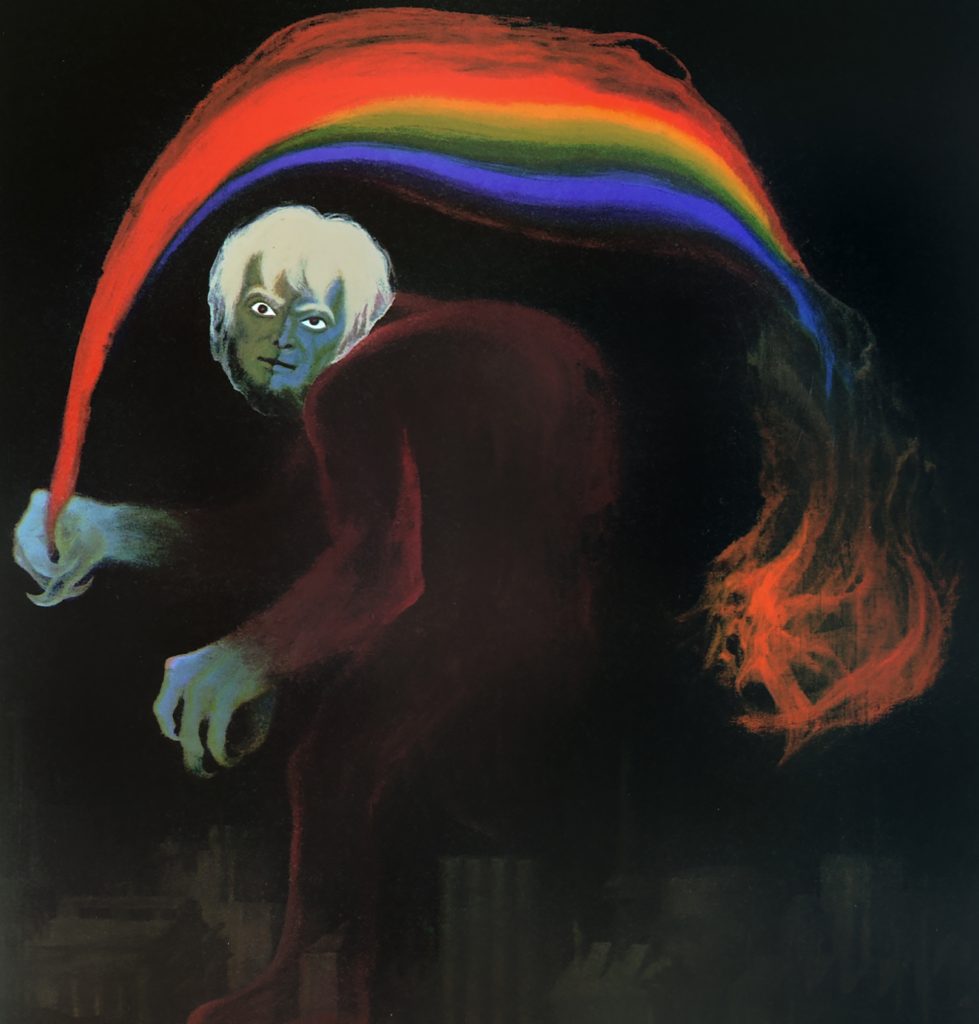
But one thing you must know, the one thing I have learned is that one must live this life. This life is the way, the long sought after way to the unfathomable, which we call “divine”.
(C.G. Jung, The Black Books)
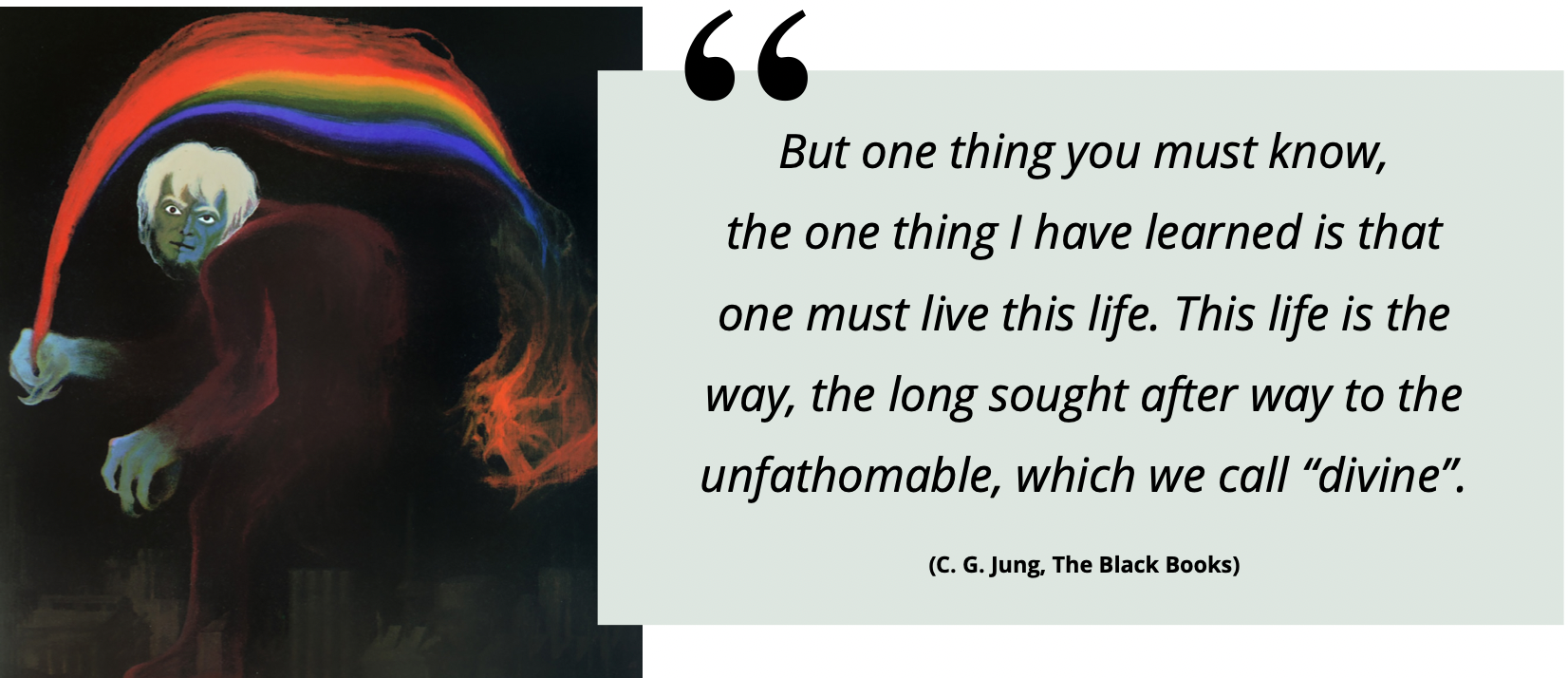
FACULTY


Murray Stein, PhD is a Training and Supervising Analyst at the International School of Analytical Psychology Zurich (ISAP-ZURICH). He was president of the International Association for Analytical Psychology (IAAP) from 2001 to 2004 and President of ISAP-ZURICH from 2008 to 2012. He has lectured internationally and is the editor of Jungian Psychoanalysis and the author of Jung’s Treatment of Christianity, In MidLife, Jung’s Map of the Soul, Minding the Self, Outside Inside and All Around and The Bible as Dream, Men Under Construction. The second volume of his Collected Writings, titled Myth and Psychology, has recently been published. He lives in Switzerland and has a private practice in Zurich. http://www.murraystein.com
Dr. Lionel Corbett trained in medicine and psychiatry in England and as a Jungian Analyst at the C.G. Jung Institute of Chicago. Dr. Corbett is a professor of depth psychology at Pacifica Graduate Institute, in Santa Barbara, California, where he teaches depth psychology. His primary interests are: the religious function of the psyche, especially the way in which personal religious experience is relevant to individual psychology; the development of psychotherapy as a spiritual practice; and the interface of Jungian psychology and contemporary psychoanalytic thought. He is the author of numerous professional papers and six books: Psyche and the sacred; The religious function of the psyche; The sacred cauldron: Psychotherapy as a spiritual practice;, The soul in anguish: Psychotherapeutic approaches to suffering, and Understanding Evil: A guide for psychotherapists. He is the co-editor of four volumes of collected papers: Psyche’s Stories; Depth psychology, meditations in the field; Psychology at the threshold; and Jung and aging. https://www.pacifica.edu/faculty/lionel-corbett/
Keiron le Grice Ph.D., is a professor of depth psychology in the Jungian and Archetypal Studies specialization at Pacifica Graduate Institute, California, where he teaches courses on individuation, alchemy, synchronicity, and archetypal astrology. Originally from Nottinghamshire, England, he was educated at the University of Leeds (B.A. honors, Philosophy and Psychology) and the California Institute of Integral Studies (CIIS) in San Francisco (M.A., Ph.D., Philosophy and Religion). He is the author of several books including The Archetypal Cosmos, The Rebirth of the Hero, and the forthcoming The Lion Will Become Man and three-volume The Way of the Archetypes. He is also co-editor of Jung on Astrology and a founding editor of Archai: The Journal of Archetypal Cosmology. www.keironlegrice.com.
Barbara Helen Miller, born in the USA, has had a varied career. She was the second solo-cellist with the Radio Philharmonic Orchestra of the Netherlands for thirteen years. But then she returned to academia and received the Master of Arts in Psychology and Religion, and received the Ph.D. in Anthropology from Leiden University (the Netherlands). Since receiving the Diploma in Analytical Psychology from C.G. Jung Institute Zürich (Küsnacht, Switzerland), she has been in private practice, and holds membership in the professional organizations NAAP and IAAP. She is currently an independent scholar, working in co-operation with the Research Group Circumpolar Cultures, and the author of a variety of publications. https://naap.nl/en/barbara-helen-miller/
Professor Les Stein is a Jungian Analyst in Sydney. His books, relevant
to this presentation include, Becoming Whole: Jung’s Equation for Realizing God; Working with Mystical Experiences in Psychoanalysis: Opening to the Numinous; The Self in Jungian Psychology: Theory and Clinical Practice; The Journey of Adam Kadmon: A Novel; and his is editor of the forthcoming: Eastern Practices and Individuation: Essays by Jungian Analysts. He has also had a fifty-year engagement with a North Indian Tantric practice.
Karin Jironet, Ph.D., earned her Ph.D. in Theology, Psychology of Religion, at the University of Amsterdam, the Netherlands in 1998. As a postdoctoral researcher she published on Sufi mysticism (Leiden University, the Netherlands). Karin, who was trained as a Jungian psychoanalyst in Zurich (ISAP), is a member of IAAP and AGAP and served at the board of NAAP. She is an internationally published author of several peer-reviewed articles and of nine books, of which one, Female Leadership, was nominated for the Gradiva Award in 2011, New York. Her orientation is towards spirituality in leadership, corporate as well as personal. She serves on Ph.D. committees internationally, travels and works with groups and individuals globally and in her private practices in the Netherlands and in Italy. https://jironet.com
Professor Roderick Main works at the University of Essex, UK, where he is Professor in the Department of Psychosocial and Psychoanalytic Studies and Director of the Centre for Myth Studies. He has a BA and MA in Classics from the University of Oxford and a PhD in Religious Studies from Lancaster University. He is the author of The Rupture of Time: Synchronicity and Jung’s Critique of Modern Western Culture (Brunner-Routledge, 2004) and Revelations of Chance: Synchronicity as Spiritual Experience (SUNY, 2007), editor of Jung on Synchronicity and the Paranormal (Princeton/Routledge, 1997), and co-editor of Myth, Literature, and the Unconscious (Karnac, 2013), Holism: Possibilities and Problems (Routledge, 2020), and Jung, Deleuze, and the Problematic Whole (Routledge, 2021). www.roderick-main
Jim Manganiello is a clinical psychologist working in the depth psychology and depth therapy tradition. He has an associate professor academic rank. He has worked in the Dzogchen contemplative science tradition for more than 30 years. He has presented his work internationally, on the sacred interface between depth psychology and spirituality. Jim is the author of articles and books in this vein. Including an essay in the forthcoming Eastern Practice and Individuation, on the possibilities of a transcendent third between individuation theory and Dzogchen psychology, written with Murray Stein. www.jimmanganiello.com
Dr. Evangeline Rand holds an undergraduate in Education and Music at Goldsmiths College, University of London, UK, a master’s degree in Educational Psychology at the University of Alberta, Canada and completed her doctoral work through the International College, U.S.A. She still maintains a broad-ranging clinical practice as Registered Psychologist in Edmonton, Alberta, Canada. She has published Recovering from Incest: Imagination and the Healing Process (1989, Sigo) and Recovering Feminine Spirituality (1997) which explores the mysteries of the Mass through mythologies and images of the Feminine and Woman. Her recent book, Jung as Artisan: Cross Connections with India: Considerations in times of crisis, pertains to the teachings and geometric insights of 2nd century Alexandrian Maria Prophetissa. http://www.evangelinerand.com/
Stephen Farah, MA, is the co-founder and head of learning and research at The Centre for Applied Jungian Studies South Africa. He is an executive member and current co-chair of the International Association of Jungian Studies. Stephen holds an honours degree in analytical philosophy from the University of the Witwatersrand and a Master’s degree in Jungian and Post Jungian Studies from the University of Essex. Stephen’s areas of interest include psychoanalysis, film, consciousness and individuation. His paper ‘True detective and Jung’s four steps of transformation’ was published in The Routledge International Handbook of Jungian Film Studies. He is currently compiling and editing (with co-editor Marybeth Carter) an anthology of papers for ‘The Spectre of the Other in Jungian Psychoanalysis‘.


